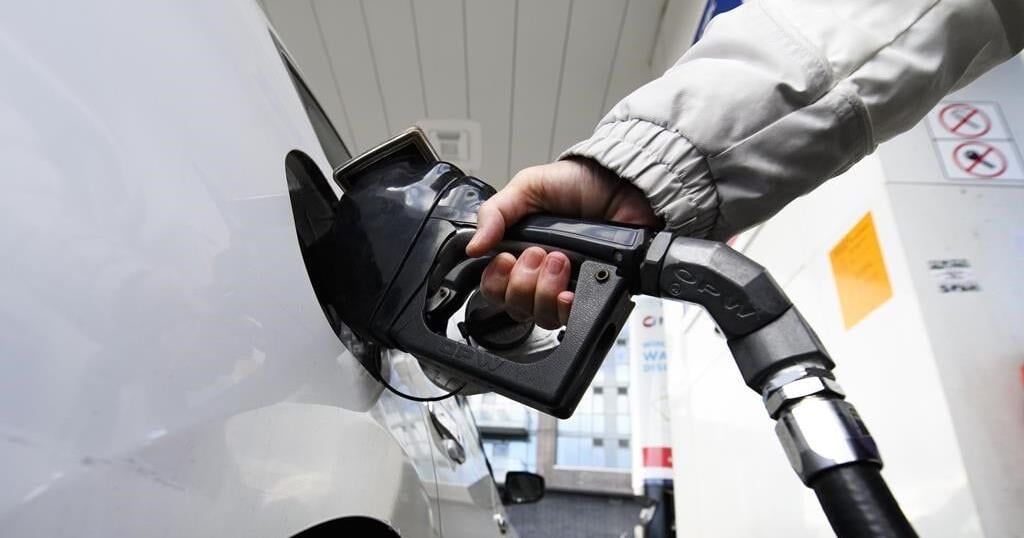OTTAWA – The second instalment of this year’s national carbon-price rebate was deposited or mailed out to millions of households Monday.
It was the first time banks were required to follow new orders to label the payments as the federal government wishes.
The rebate is sent out in four instalments over the year and is based on household size and which province people live in, with a family of four receiving between $190 and $450 in the latest payment.
Rural residents, plus every household in Prince Edward Island, got 20 per cent more to account for the higher carbon pricing costs associated with having to drive longer distances, and having fewer options to reduce emissions such as using public transit.
Most people should see the rebates clearly labelled this time, as Parliament passed a law June 20 that means banks can no longer balk at changing their systems to put a prescribed title on the deposits.
Most banks made the requested adjustment before April, but now they no longer have a choice.
Not all banks responded to a question about their labels, but RBC confirmed Monday that its customers will see the payment deposited as a “Canada Carbon Rebate,” or the equivalent in French.
CIBC said Monday it would work to make the change by the end of the summer. The next payment is scheduled for October.
The payments come amid ongoing political battles over carbon pricing.
The Liberals insist it is the fairest and most efficient way to incentivize people to cut their emissions, while the Conservatives argue it makes things more expensive and has little impact on the global outlook.
On Monday, Environment Minister Steven Guilbeault reiterated the government’s data, which show eight in 10 households will get more from the rebate than they pay in carbon pricing.
“Unless you are a major polluter, you’ll get more money back than you pay, leaving you better off and helping to fight climate change,” he said on social media.
Conservative Leader Pierre Poilievre is campaigning hard to get rid of the carbon price and promises to do so if the Tories form the next government.
Under carbon pricing legislation, the consumer fuel charge is applied to the purchase of 21 different fuels and three combustible waste categories, including tires and asphalt shingles.
This year, the rate is $85 for every tonne of greenhouse-gas emissions produced when those materials burn. Specifically, that adds 17.6 cents to a litre of gasoline, 15 cents to a cubic metre of natural gas and 10 cents to a litre of propane.
The law dictates that the rebate must return 90 per cent of the revenue Ottawa collects from the consumer carbon levy to households in the eight provinces where it is paid.
British Columbia and Quebec have their own separate but equivalent carbon pricing systems and therefore don’t receive the federal rebates.
People get the same rebate no matter their income or actual fuel purchases.
Ultimately, that means lower-income households that tend to drive less, travel less, live in smaller homes and buy fewer goods end up with a much higher rebate than what they pay, while higher-income households often pay more than they get back.
In 2023, the parliamentary budget officer estimated that on average, Canadian households this year would be better off by between $43 and $558 as a result of the rebate, with the lowest-income households receiving between $230 and $616 more than they paid.
High-income households everywhere but Alberta and Newfoundland and Labrador were projected to pay between $12 and $206 more than they got back. The analysis found the wealthiest families in Alberta and Newfoundland would on average be better off by $484 and $106, respectively.
The PBO also analyzed the economic impact carbon pricing would have on families, including on wages and jobs, but is currently updating that analysis after realizing this spring that a mistake was made in the calculations.
The federal government estimated that carbon pricing would reduce the size of the Canadian economy by about $9 billion this year, but noted that figure doesn’t account for the economic benefits from climate action investments or the impact on the economy when people spend their carbon rebates.
Monday was also the final day for small businesses to file their tax returns to qualify for a new automatic refundable tax credit to offset some of their carbon pricing costs.
Small businesses were to share seven per cent of revenues, originally through grants to help pay for energy efficient upgrades, but that program failed to work.
Ottawa now has a tax credit to return $2.5 billion in collected revenue since 2019 to an estimated 600,000 small businesses, but only those that filed their taxes by July 15 will be eligible.
This report by The Canadian Press was first published July 15, 2024.
